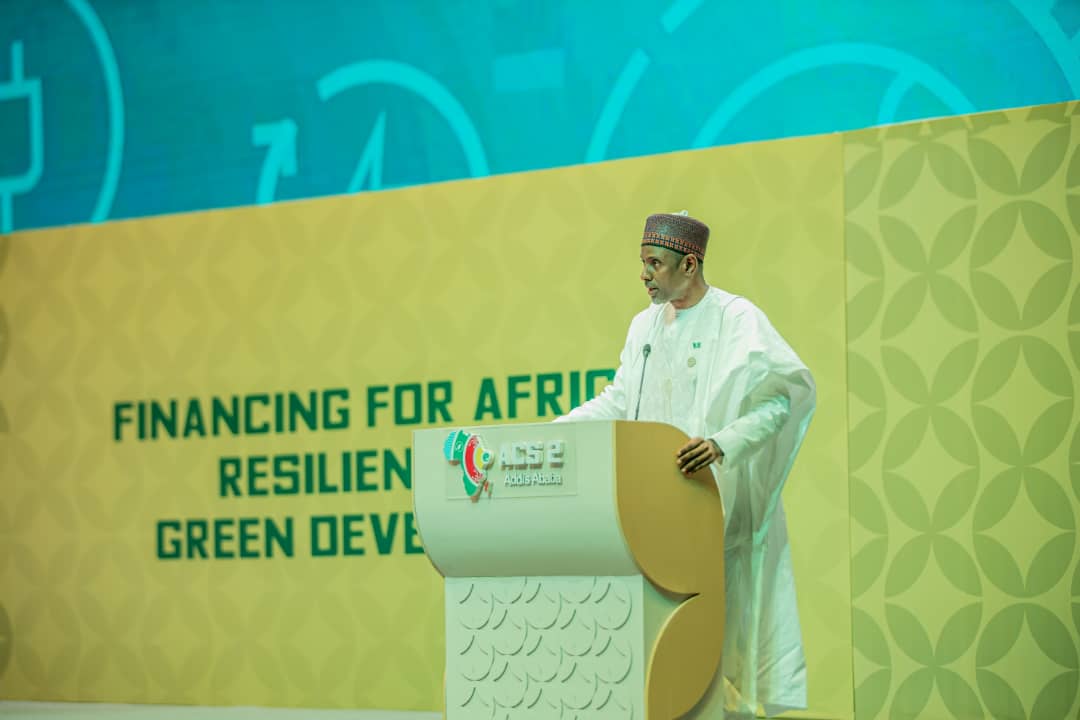By David Okpokwasili |The Chambers News
“Nigeria is committed to mobilize significant funds for climate finance over the next five years, with at least 40% of the funds targeted to adaptation and resilience in the most vulnerable communities.”
This is at according to Nigeria’s Environment Minister, Balarabe Abbas Lawal at the second Africa Climate Summit in Addis Ababa Ethiopia.
Speaking at a high-level leaders event of the summit, the Minister represented by the Permanent Secretary fod Solid Minerals Development, Faruk Yabo Yusuf promised that the Nigerian government will encourage public-private partnerships, with focus on blended finance, green bond and green guarantees to de-risk projects and explore carbon markets.
According to the African Union Commission, the second African Climate Summit is decisive moment for Africa to unite in pursuit of climate justice, resilient development, and a sustainable future for generations to come- directly advancing the continental blueprint, Agenda 2063: “The Africa We Want.”
Recommitting to Nigeria’s climate change agenda, the Environment Minister, Mr Lawal restated that “the Federal Government of Nigeria has made a clear pathway to net-zero by year 2060, aligned with a just transition that safeguards jobs and industrial capacity.
“We have approved the Climate Change Act, 2021; as well as developed an all-society and economy-wide NDC 3.0, 2025 with a clear roadmap for annual public reporting.
“Nigeria has also begun a rapid deployment of gas-to-power projects, along with accelerated solar and wind initiatives. These efforts aim to achieve Mission 300. Progress has also been made on green and blue hydrogen pilots, as well as utility-scale storage, to enhance reliability of our power grid. Climate-smart agriculture programs are scaling up to reach millions of smallholder farmers, and efforts are progressing to expand flood control measures and resilient housing. Additionally, there is a nationwide rollout of clean cook-stoves and LPG cylinders to reduce household air pollution by 60% by 2030.”
He urged fellow African leaders and other stakeholders to support regional power pooling, broaden access to technology and private finance using de-risking instruments such as green guarantees, and commit to rapid project rollouts.
Mr Lawal added that “Nigeria is determined to partner with all Member States, institutions, and donors to translate climate ambition into concrete, scalable, and impactful action, as envisaged in the African Union Agenda 2063.”

